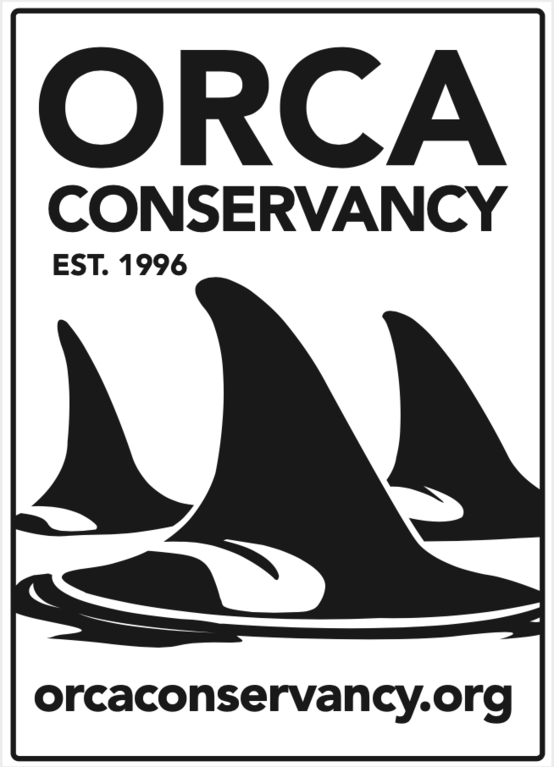Orca Conservancy Annual Report 2021
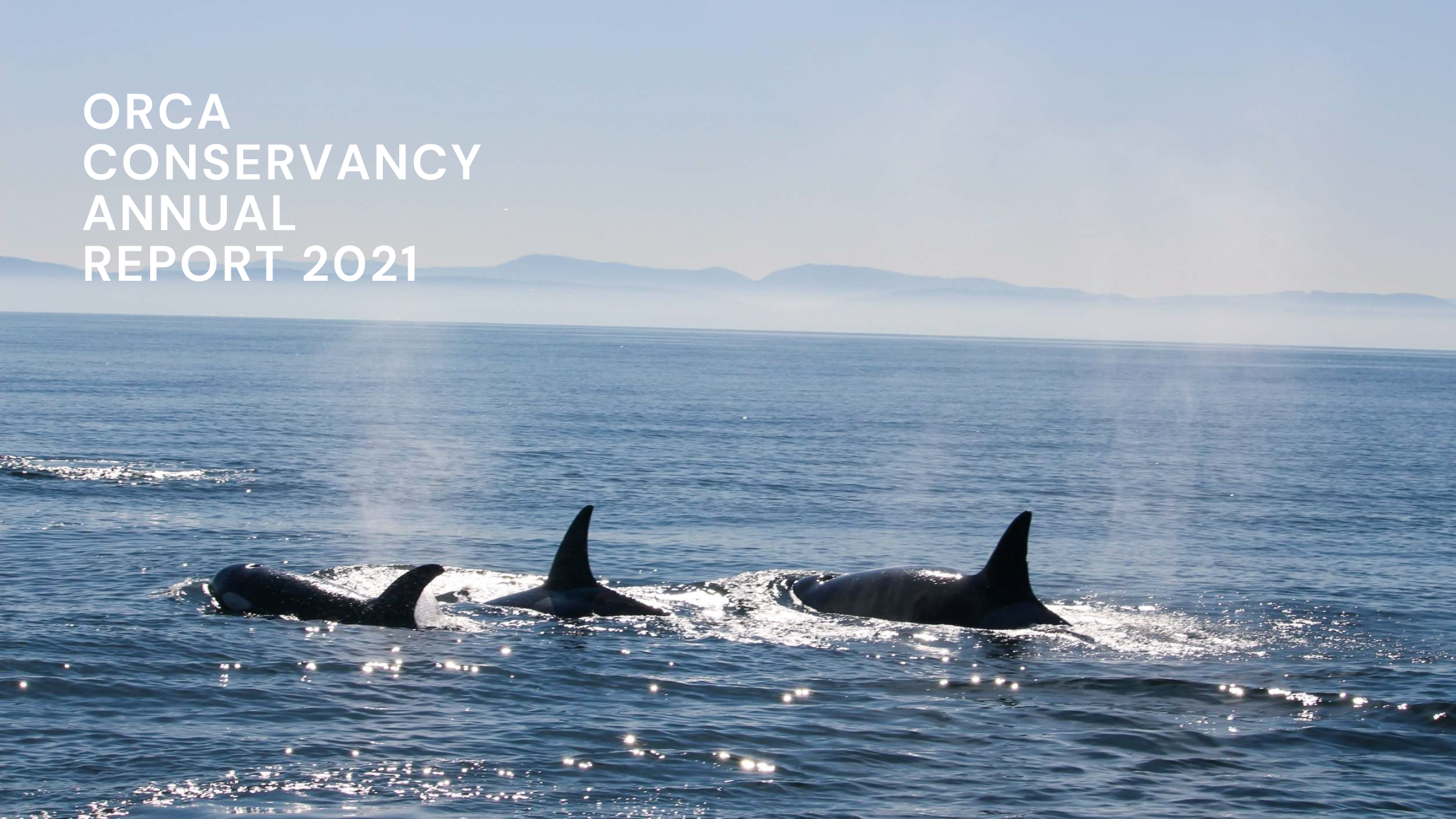
We at Orca Conservancy take pride in our transparency and commitment to the the recovery efforts of the critically endangered Southern Resident killer whales. As a non-profit organization we depend on the support of our donors, partners, and sponsors to do what we do best, which is to protect the Southern Residents. We feel it is important that all our supporters have visibility into our work, which is why we are excited to share our Annual Report from 2021.
Click here to read the full report
2021 Overview
January
- Orca Conservancy attended the2020-21 Legislative Session.
- Orca Conservancy made comment on the Draft Lower Snake River Dam Report.
February
- OC Chief Scientist, Dr. Bain and other PhD scientists reached out to Northwest Governors, Senators and Members of Congress regarding the SOUTHERN RESIDENT KILLER WHALES & COLUMBIA/SNAKE RIVER CHINOOK: A REVIEW OF THE AVAILABLE SCIENTIFIC EVIDENCE | White Paper.
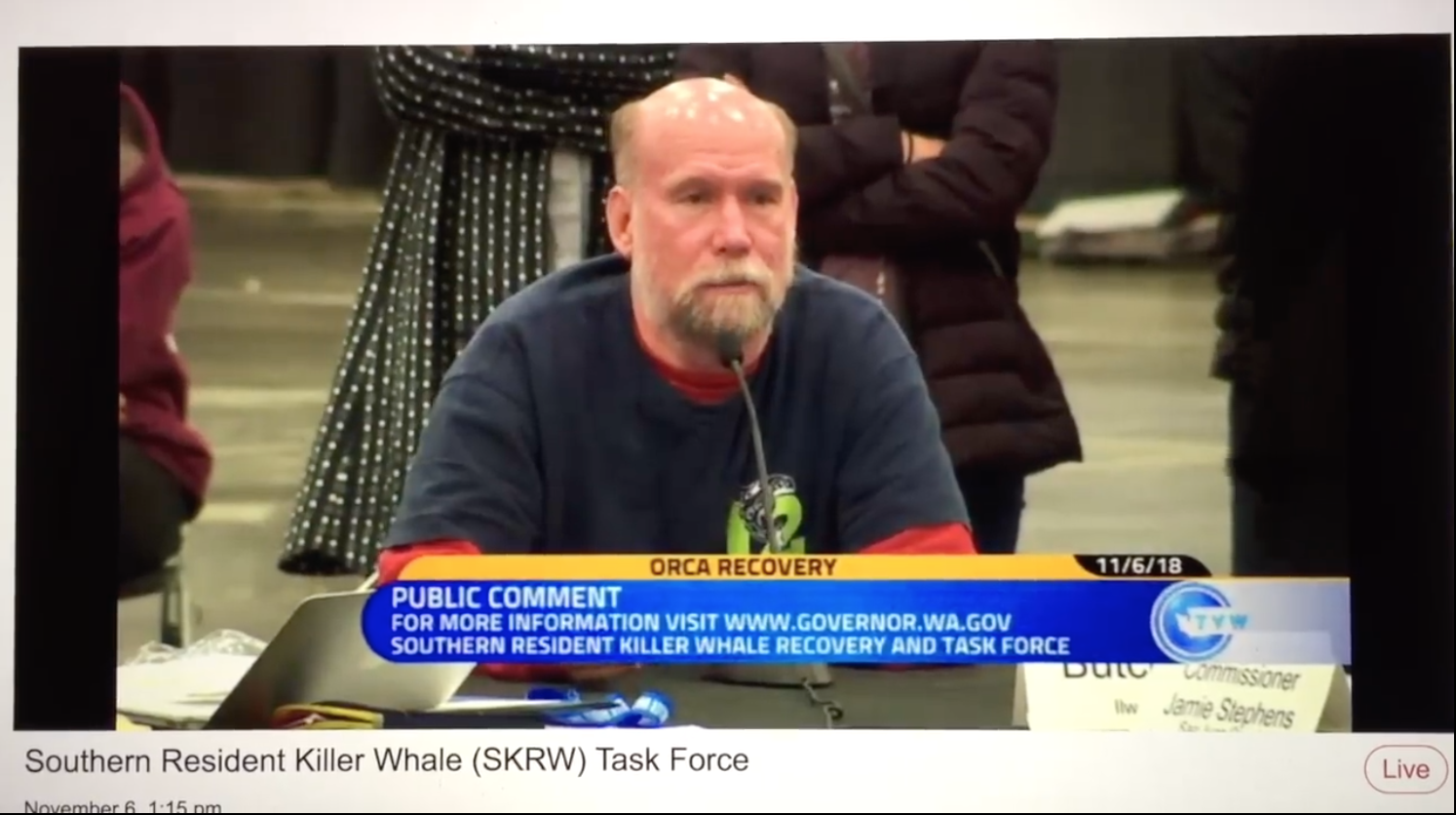
March
- Orca Conservancy made comment on the National Environmental Policy Act (NEPA) to oppose changes that would work directly against any ongoing efforts. The Impact Assessment Agency of Canada released a report to the Canadian Impact Assessment Registry which concluded the development of the Robert Banks Terminal 2 (RBT2) will result in a “significant adverse effect” on endangered Southern Resident killer whales (SRKWs).
April
- Orca Conservancy made comment on the Columbia River System Operations Draft Environmental Impact Statement.
May
- Orca Conservancy reached out, personally, to Jonathan Wilkinson to encourage him to prevent future installation of Roberts Bank Terminal II.
- Orca Conservancy joined the Center for Biological Diversity requesting that NMFS withdraw proposed incidental harassment authorization to conduct seismic survey activities on the West Coast.
- OC Makes Comment on the Proposed Chehalis River Basin Flood Damage Reduction Project Environmental Impact Statement (EIS)
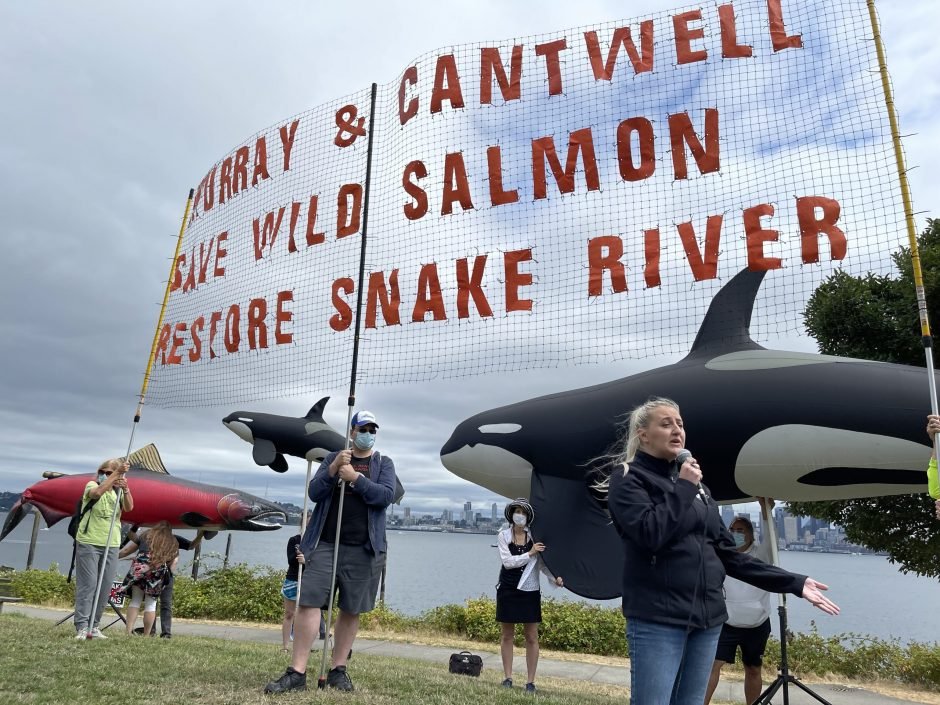
June
- Orca Conservancy made comment to the Washington State Department of Ecology opposing Cooke Aquaculture application to rear Oncorhynchus mykiss in Puget Sound.
July
- Orca Conservancy shared the Hot Water Report in partnership with Save Our Wild Salmon Coalition. This weekly report presents the condition of the Lower Snake and Columbia Rivers and the impact the warming water temperatures are having on endangered wild salmon populations.
- Orca Conservancy joined the Endangered Species Coalition and spoke at the Seattle Rally For the River event, urging local representatives to restore the salmon population in efforts to recover the SRKWs by the removal of the 4 Lower Snake River dams.
- Orca Conservancy Comments on TMDL for Temperature in the Columbia and Lower Snake Rivers.
August
- Orca Conservancy Urged Warren Buffett to Continue Backing Klamath River Dam Removal.
September
- Orca Conservancy made Comment on Endangered and Threatened Wildlife and Plants: Regulations for Listing Endangered and Threatened Species and Designating Critical Habitat.
- As part of the Our Sound, Our Salmon Coalition Orca Conservancy sent a letter of solidarity for the First Nations Leadership Council call on Prime Minister Trudeau, Premier Horgan, and DFO Minister Jordan to remove open-net salmon farms from British Columbia waters.
October
- Orca Conservancy made comment on the Commercial Whale Watching SEPA Draft EIS Public Comment.
- Orca Conservancy made comment on the Ecology Draft ‘Modified’ National Pollutant Discharge Elimination System (NPDES) Permits to Raise Steelhead.
- 28 NGOs in the PNW Thank Governor Inslee for his Leadership, to Offer Our Support, and to Share Our Perspective on Key Issues Moving Forward.
- Orca Recovery Day, Orca Conservancy, and friends spent the morning cleaning the private beach at Shorewood on the Sound.
November
- Orca Conservancy made comment on the Chehalis River Basin Flood Damage Reduction Project | NWS-2014-1118
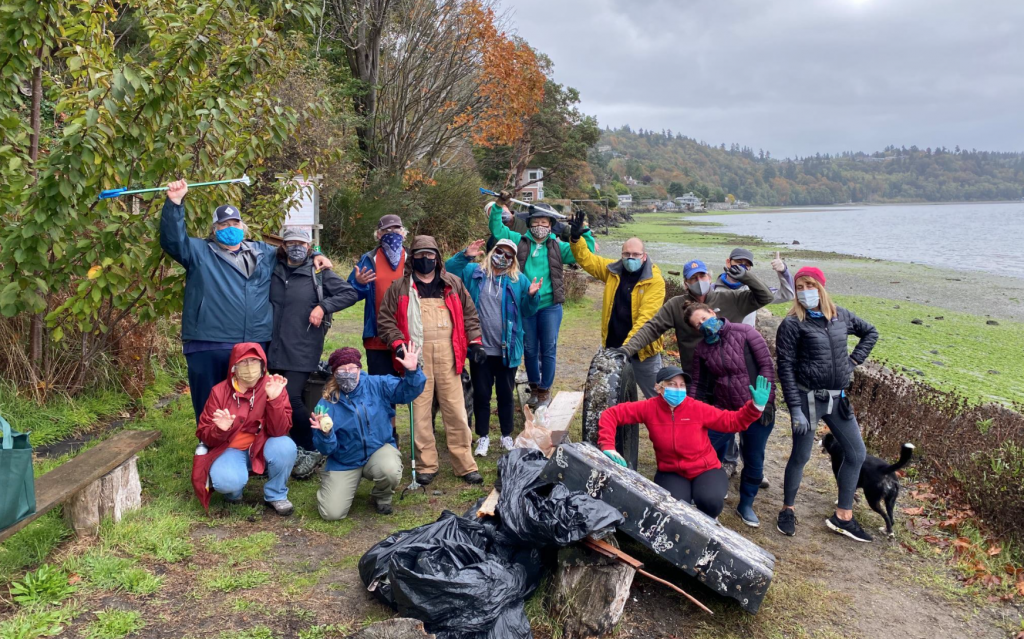
Projects and Initiatives
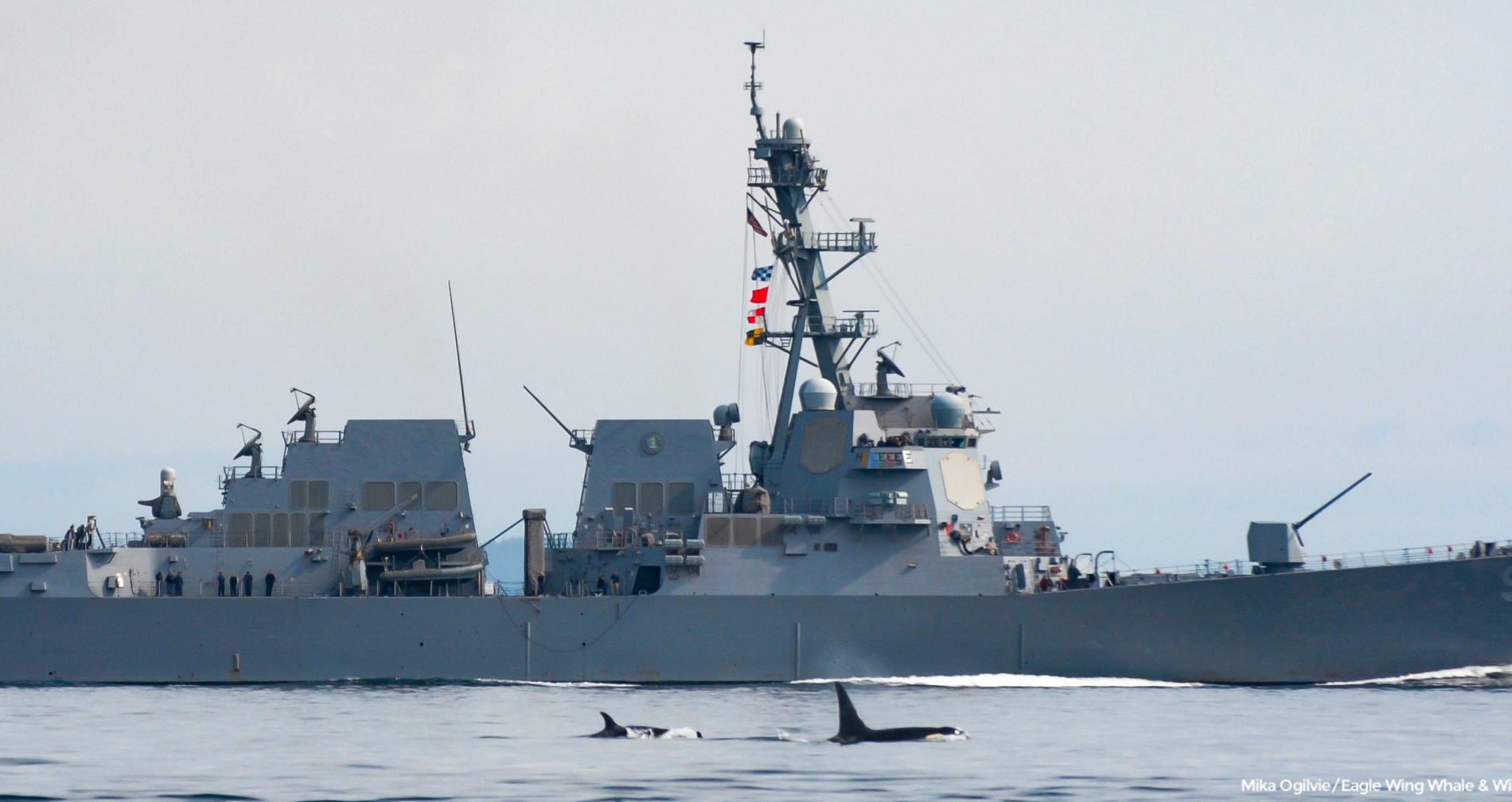
AI4Orcas Hydrophone Project:
Orca Conservancy is expanding the local network of hydrophones to aid in the issue of noise pollution.
Strategically placed hydrophones connected to AI technology programmed to identify whale calls will allow us the ability to notify selected parties such as military, local ferries, shipping companies, and more of the presence of whales so they are able to slow down and cease dangerous activities to reduce the risk of harm and keep waters quiet to allow whales to forage for fish.
Click here to learn more or donate to this project
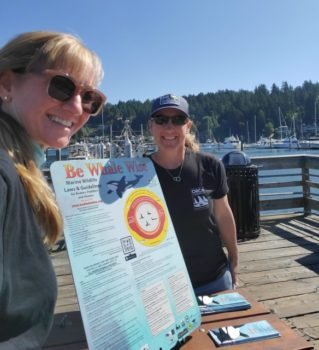
Boater Education/Enforcement:
Orca Conservancy partnered with Soundwatch to educate recreational boaters on Be Whale Wise guidelines.
During select months volunteers were stationed at various marinas engaging with local boaters and handing out information on updated guidelines to ensure responsbile and safe boating around wildlife, specifically the endangered SRKWs. Additionally, volunteers were trained to document vessel behavior using theodolite equipment and video footage to measure distances and gather data on boater behavior.
Salmon Enhancement:
Orca Conservancy in partnership with the City of Everett and Snohomish Co. Parks, Adopt-A- Stream Foundation (AASF) will install 16-beaver dam analogs (BDA) and logjams at 3 locations in the upper third of the main stem of North Creek that flows from South Everett to Bothell and the Sammamish River.
Installation of BDAs and logjams in the headwaters of this heavily urbanized stream will improve habitats for all aquatic life,
specifically Chinook, Coho,
steelhead, sockeye, and resident cutthroat trout that utilize the North Creek as spawning and rearing habitat.
Water Temperature Testing:
This project will utilize community scientists to examine the relationship of land use practices to changes in water temperature and share the results with the public and elected officials.
Cool water is essential to the survival of salmon, including Chinook, which are the primary food source for Southern Resident killer whales. Urbanization and climate change are leading to increasing water temperatures. In contrast, healthy forests can cool streams. The goal of this work is to build public awareness of the threats to water quality from development in
riparian habitat and the potential for habitat restoration to repair the damage.
